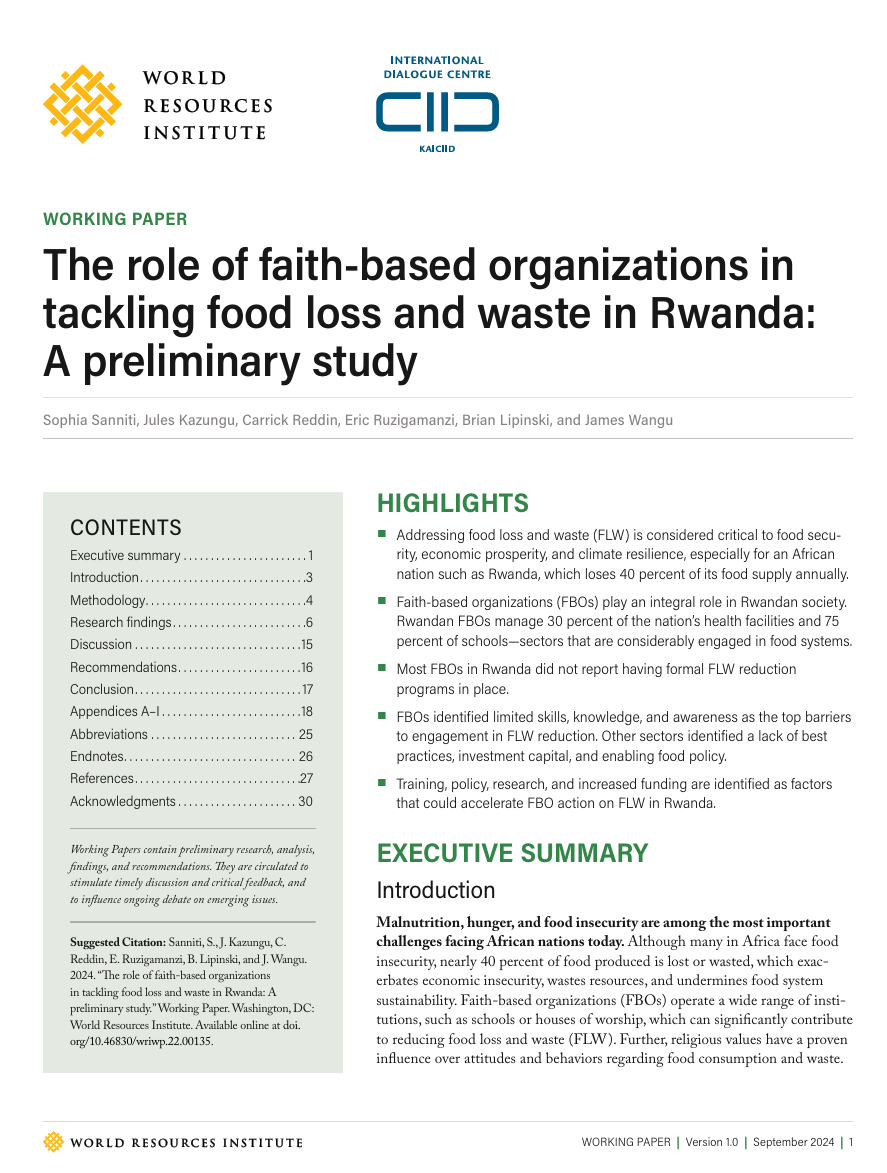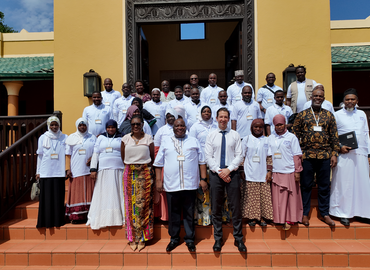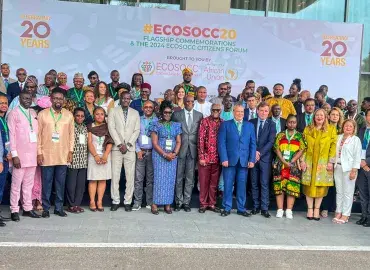Faith at the Table: New Publication Charts Path for Food Systems Transformation in Africa
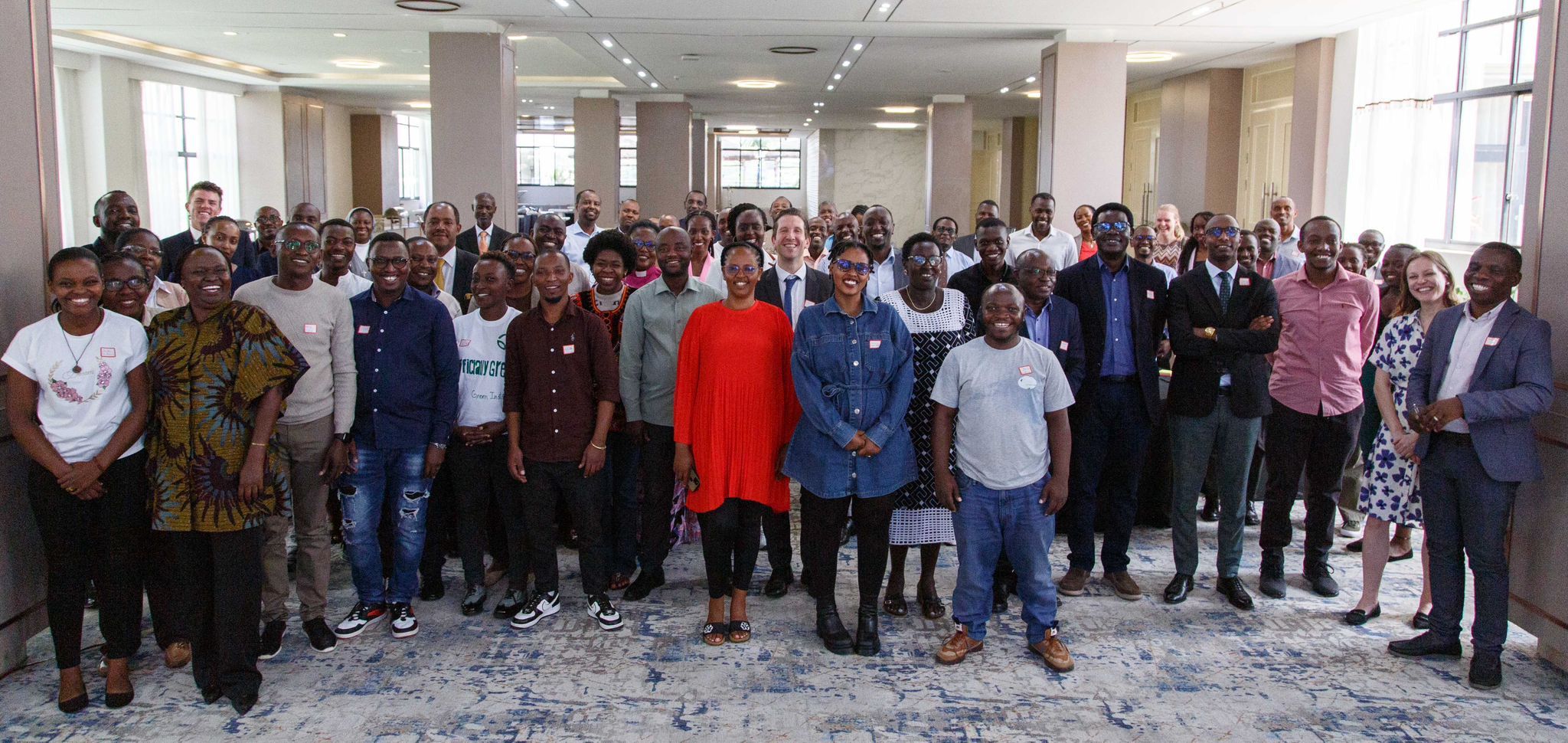
Conference Proceedings Released for the Faith-led Food Systems Summit Co-Convened by KAICIID and WRI in Kigali
In a powerful affirmation of the role that faith-based organizations (FBOs) can play in shaping equitable and sustainable food systems, the World Resources Institute (WRI) and the International Dialogue Centre – KAICIID have jointly released the official conference proceedings from the Faith-led Food Systems Transformation Summit, held in Kigali, Rwanda in December 2024.
Titled “Towards a Legacy of Resilience”, the publication captures the diverse insights, practical recommendations, and emerging partnerships from the summit, highlighting how faith communities are uniquely positioned to contribute to food security, climate resilience, and sustainable agricultural practices across East Africa and beyond.
Read Towards a Legacy of Resilience: Faith-led Food Systems Transformation Summit
A Shared Vision for Justice and Sustainability
The Kigali summit, co-facilitated by KAICIID and WRI, was attended by over 130 stakeholders from 33 countries, representing 54 organizations, including faith-based organizations (FBOs), UN agencies, civil society, and research institutions .Its central aim: to recognize and scale the work of FBOs across the food value chain from regenerative farming and food loss reduction to ethical distribution and waste management. “Faith actors are not just spiritual leaders; they are stewards of land, educators, and first responders in communities,” said Mr. Agustin Núñez-Vicandi, KAICIID’s Senior Programme Manager for Africa. “Their engagement in food systems transformation is essential to building inclusive, people-centered development models.”
Insights and Innovation from the Field
The proceedings detail local success stories and challenges faced by FBOs, including:
- School-based agriculture education initiatives;
- Solar-powered food drying systems to reduce waste;
- Faith-led advocacy for regenerative farming aligned with environmental ethics;
- Strategies for engaging youth and women in food sovereignty efforts.
Interactive workshops helped participants map their interventions across the food value chain and co-create action plans focused on regenerative agriculture, capacity-building, and multisector partnerships. A key outcome was the recognition of FBOs not only as service providers but as policy influencers capable of advancing ethical food governance.
KAICIID’s Role: Dialogue as a Catalyst
For KAICIID, the summit reaffirmed the Centre’s commitment to leveraging interreligious dialogue as a tool for development and creating sustainable societies. The event built on the Centre’s ongoing partnerships with faith networks across Africa and complemented earlier joint research with WRI on the role of faith communities in tackling food loss and waste.
Rather than imposing new models, KAICIID’s approach centered on enabling collaboration, facilitating dialogue between religious leaders, policy experts, and environmental practitioners to identify areas for joint action. This aligns with KAICIID’s broader mandate to foster understanding and cooperation across cultures and faiths, especially in tackling global challenges such as climate change, migration, and inequality.
A Roadmap for the Future
The publication outlines five key recommendations for scaling faith-led food systems transformation:
- Promote regenerative agriculture using faith-owned land and resources.
- Raise awareness through scripturally grounded educational campaigns.
- Expand post-harvest interventions such as storage and processing.
- Institutionalize faith actors in national and regional food policy forums.
- Facilitate partnerships across sectors for technical, financial, and advocacy support.
This roadmap echoes the voices heard throughout the summit, voices calling for deeper inclusion of moral, spiritual, and cultural values in the pursuit of food justice and environmental sustainability.
Continuing the Dialogue
As the summit proceedings are shared with a broader audience, KAICIID and its partners invite further collaboration with faith actors, local governments, development agencies, and private sector innovators. This is just the beginning of a growing movement that recognizes food not only as sustenance but as a sacred thread connecting people, planet, and purpose.

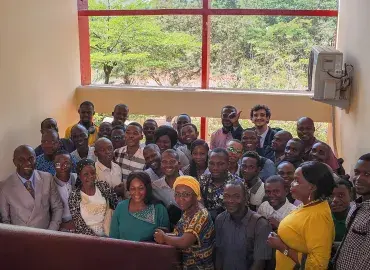
As the Sustainable Development…

